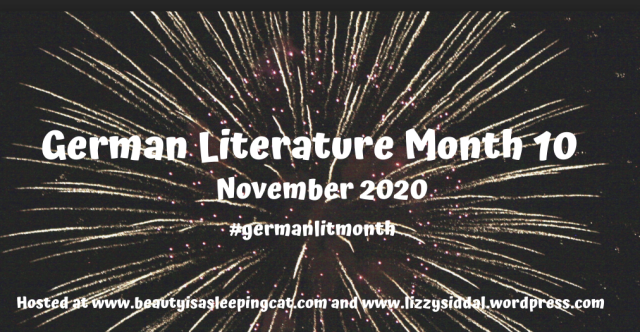
10 years, who would have thought it? But here we are, and in a year when there has been plenty to be glum about, Lizzy and I thought we should buck the trend, and celebrate ten years with a bang! Hence the badge.
Thanks to all who have travelled with us thus far. We hope you’ll accompany us again. For those who may be new to this, German Literature Month is the month for reading all things originally written in German – in whatever language you wish to read it – and then telling the world about it. Blogs, Twitter, Facebook, Instagram, YouTube, Goodreads. All good. Just use the hashtag #germanlitmonth when you share your thoughts.
Don’t have a clue what to read? There’s a veritable database of reviews over at www.germanlitmonth.blogspot.com to help you find something appealing.
This year’s programme is a little different. Or, to be more precise, there are two programmes.
Programme 1
Unable to visit Germany this year for pandemic related reasons, Lizzy has an acute case of Fernweh, and has therefore decided on a virtual tour of Germany. One which will include all 16 Bundesländer, one way or another. Primarily through literature interwoven with memory.
Programme 2




I have decided to focus on four authors of interest, and chosen authors mean that there are weeks in which the spotlight will also shine on Austria and Switzerland. My itinerary looks like this:
November 1-7 Sophie von La Roche
November 8-14 Max Frisch
November 15-21 Ingeborg Bachmann
November 22-28 Siegfried Lenz

The fourth week will include a Literature and War readalong of a recently discovered Lenz novel, The Turncoat. The discussion will take place on Friday 27.11.
As always, you can read as you please throughout the entire month.
We look forward to your company and discovering some scintillating German-language literature together.









